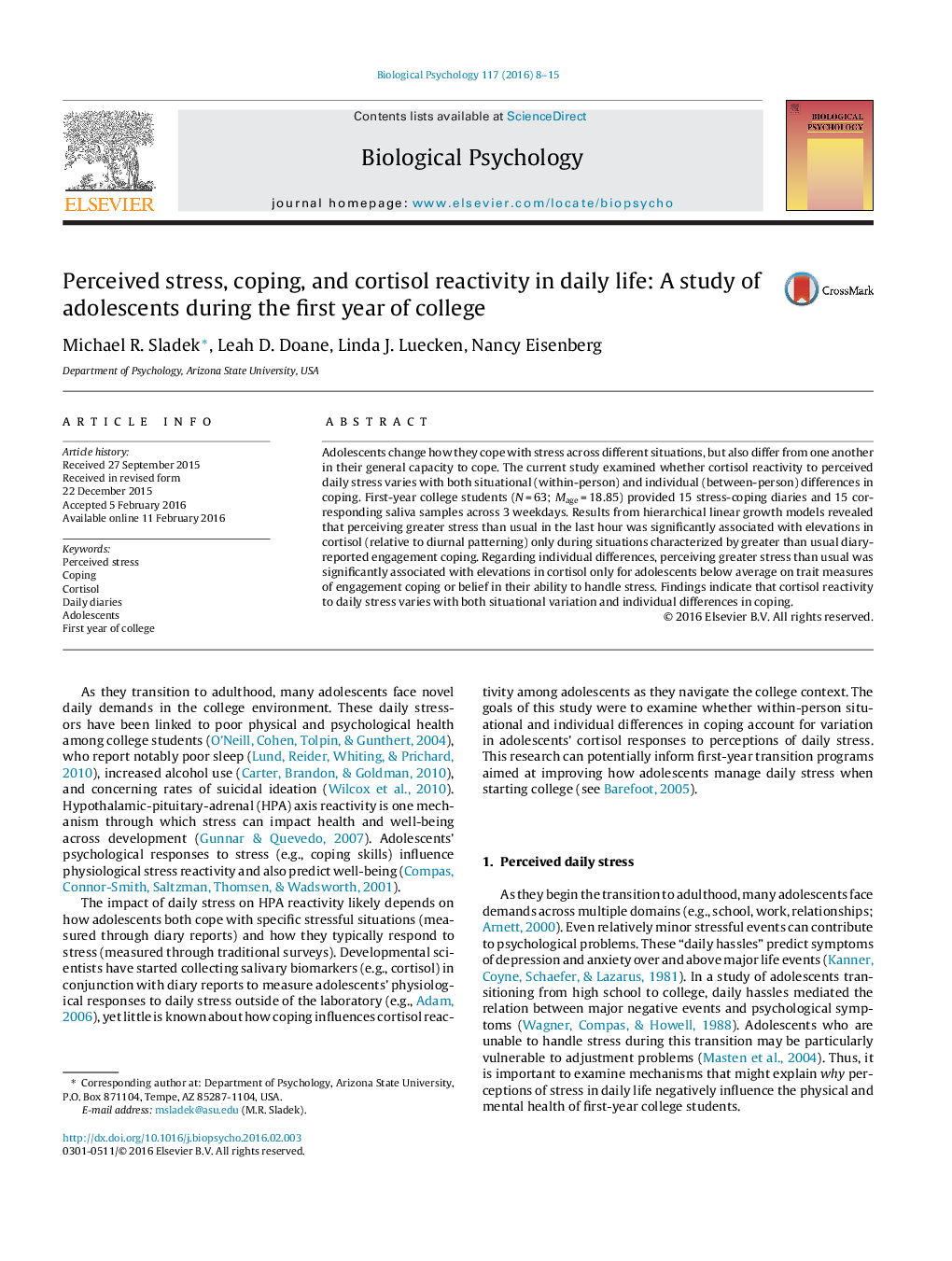| Article ID | Journal | Published Year | Pages | File Type |
|---|---|---|---|---|
| 920692 | Biological Psychology | 2016 | 8 Pages |
•Cortisol reactivity to perceived daily stress varies with coping responses.•Within- and between-person differences in coping moderated cortisol reactivity•Perceiving greater stress than usual was associated with cortisol elevations:•1) When college students responded with more engagement coping than usual•2) For students generally below average on engagement coping or coping efficacy.
Adolescents change how they cope with stress across different situations, but also differ from one another in their general capacity to cope. The current study examined whether cortisol reactivity to perceived daily stress varies with both situational (within-person) and individual (between-person) differences in coping. First-year college students (N = 63; Mage = 18.85) provided 15 stress-coping diaries and 15 corresponding saliva samples across 3 weekdays. Results from hierarchical linear growth models revealed that perceiving greater stress than usual in the last hour was significantly associated with elevations in cortisol (relative to diurnal patterning) only during situations characterized by greater than usual diary-reported engagement coping. Regarding individual differences, perceiving greater stress than usual was significantly associated with elevations in cortisol only for adolescents below average on trait measures of engagement coping or belief in their ability to handle stress. Findings indicate that cortisol reactivity to daily stress varies with both situational variation and individual differences in coping.
